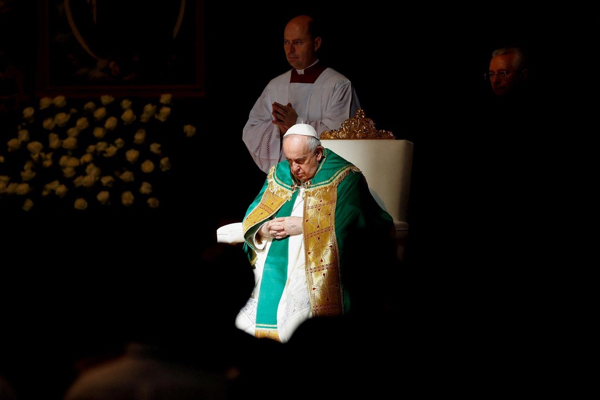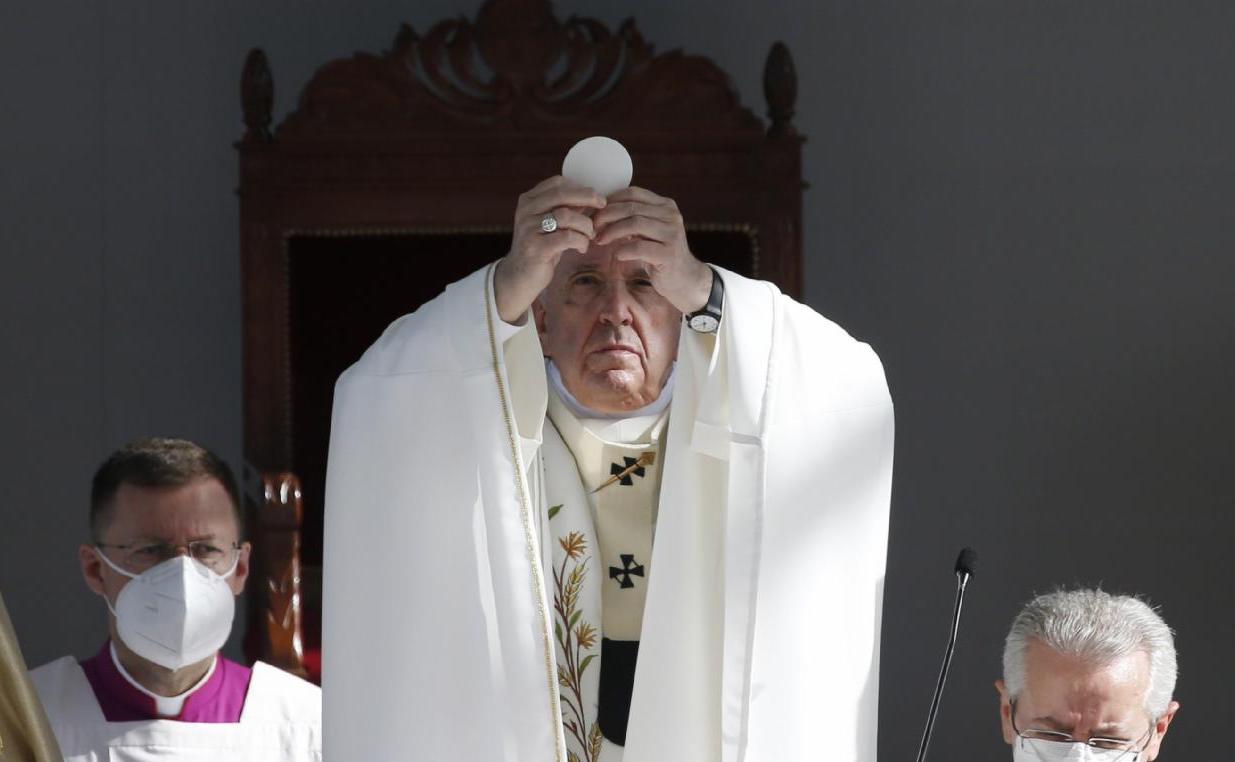On 29 June, the Feast of Sts Peter and Paul, Pope Francis issued an apostolic letter to ordained, consecrated and lay Catholics on “the liturgical formation of the people of God”. The aim of the letter is to “help us to rekindle our wonder for the beauty of the truth of the Christian celebration, to remind us of the necessity of an authentic liturgical formation, and to recognise the importance of an art of celebrating that is at the service of the truth of the Paschal Mystery and of the participation of all of the baptised in it”.
Behind the gentle words is a harsher implication: that many of the faithful no longer “wonder” at the beauty and truth of the Mass; that they need “authentic” liturgical formation; and that at least some celebrants fail to embody the requisite “art” of celebration.
The ars celebrandi “cannot be reduced to only a rubrical mechanism”, Francis says, “much less should it be thought of as imaginative — sometimes wild — creativity without rules … The true artist does not possess an art but rather is possessed by it.”
The title Desiderio Desideravi is taken from Luke 22: 15, “Desiderio desideravi hoc Pascha manducare vobiscum, antequam patiar: I have eagerly desired to eat this Passover with you before I suffer”. These words of Luke that open the account of the Last Supper, are “the crevice through which we are given the surprising possibility of intuiting the depth of the love of the persons of the Most Holy Trinity for us”. Francis’ letter explains why it is the liturgy that informs, penetrates and guides every other aspect of church life, just as Sacrosanctum Concilium, the Constitution on the Sacred Liturgy, informed and guided all the other Vatican II documents.
Desiderio Desideravi does something that Vatican II aimed to do – foster understanding and right celebration of the Mass. But of the two great aims of the Council – aggiornamento or renewal with an eye on the needs of the modern world, and ressourcement or return to the sources – Francis’ most obvious purpose is to reclaim what has been lost or forgotten.
Christ’s “infinite desire to re-establish that communion with us that was and remains his original design, will not be satisfied until every man and woman, from every tribe, tongue, people and nation (Revelation 5: 9, Francis’ italics), shall have eaten his Body and drunk his Blood. And for this reason, that same Supper will be made present in the celebration of the Eucharist until he returns again”.
A celebration that does not evangelise is not authentic, just as a proclamation that does not lead to an encounter with the risen Lord in the celebration is not authentic. “Christian faith is either an encounter with Him alive, or it does not exist. … We need to be present at that Supper, to be able to hear his voice, to eat his Body and to drink his Blood … The salvific power of the sacrifice of Jesus, his every word, his every gesture, glance, and feeling reaches us through the celebration of the sacraments,” Francis declares.
The new fact of the Incarnation “reaches in the Last Supper the extreme point of his desiring to be eaten by us”. Francis quotes Leo the Great: “Our participation in the Body and Blood of Christ has no other end than to make us become that which we eat.”
Francis responds profoundly to those who would reduce the Eucharist to a “mere” symbol. Wonder, Francis says, “is the marvelling of those who experience the power of symbol, which does not consist in referring to some abstract concept but rather in containing and expressing in its very concreteness what it signifies.” Our body, he explains, “is a symbol because it is an intimate union of soul and body; it is the visibility of the spiritual soul in the corporeal order”.
In a thrust at contemporary culture, Francis says: “To have lost the capacity to grasp the symbolic value of the body and of every creature renders the symbolic language of the Liturgy almost inaccessible to the modern mentality. And yet … such language … cannot be renounced because it is how the Holy Trinity chose to reach us through the flesh of the Word.”
So the fundamental question, Francis says is: “how do we recover the capacity to live completely the liturgical action?” That recovery is what he aims for in Desiderio Desideravi.



 Loading ...
Loading ...